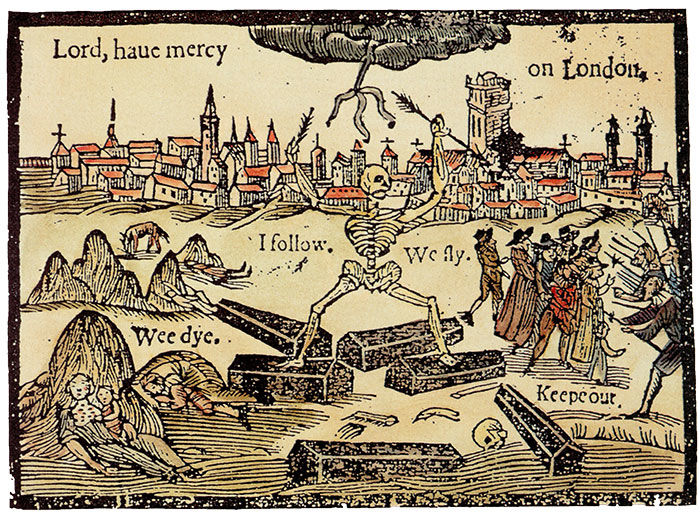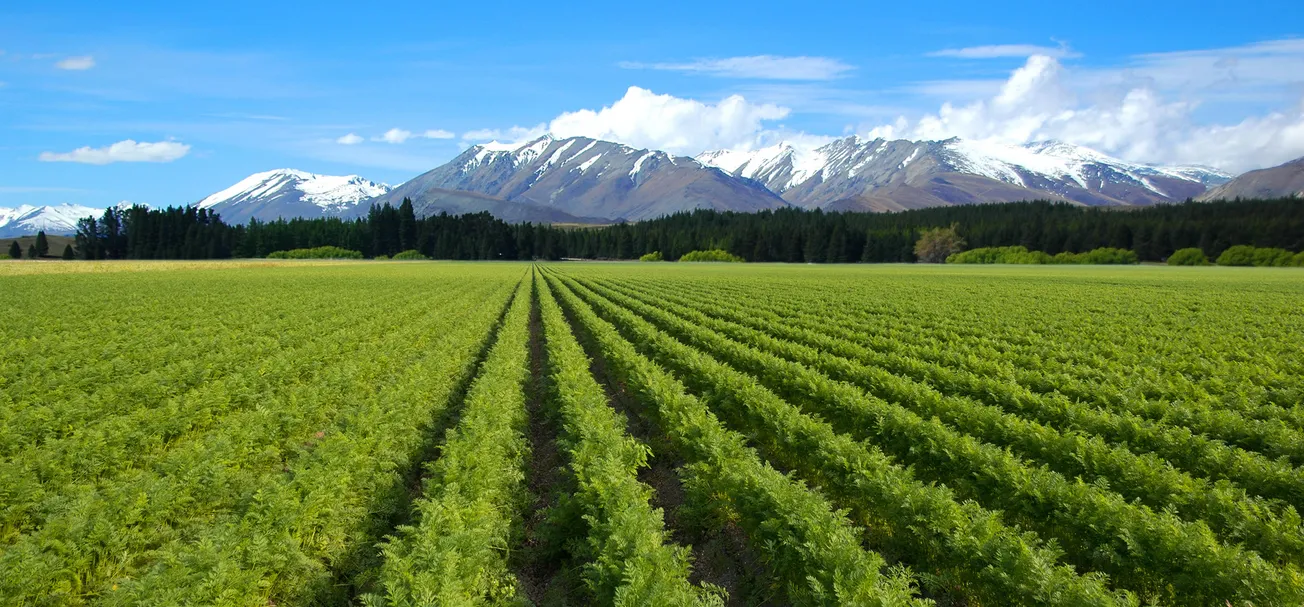Table of Contents
Pandemics, as we all know, are nothing new. What is new is the way we deal with them, but even that is true only to a point. Shakespeare wrote some of his best work while in isolation from the plague. People who were able fled the cities and moved to lower population areas to ride out the worst of the infection. Not much has changed today really, except that we have more international travel and we know a lot more about diseases, bacteria and viruses in general. But when coronavirus hit, what did we do? We locked ourselves away, and many countries that that didn’t lock themselves away quickly at the start paid the price by having increased numbers of cases and are now going in and out of lockdown with no real end in sight.

In this 1625 illustration, Londoners fleeing the plague are barred by country dwellers.
NEW YORK PUBLIC LIBRARY/SCIENCE SOURCE
Plagues don’t discriminate, of course. Rich or poor, everyone was affected. The Black Death in the 14th century, killed the largest number of people, proportionally, of all pandemics. Most of them were peasants, but many wealthier people succumbed too. At the end of it all, the wealthy landowners had a problem. There was a chronic shortage of labour. And those who were able to work could name their price, such was the demand for their services.
Medieval labourers didn’t have the career choices we have today. It was mostly farm work or nothing. They would plant, prune and pick fruit and vegetables, look after animals or plough the fields. The Agricultural Revolution and the Industrial Revolution were still a few centuries away.
Okay, so that was the Black Death. But where do we find ourselves now?
Kiwis who take up horticulture jobs could pocket an extra $1000 and get help with accommodation costs under a new scheme to tackle the country’s severe shortage of seasonal workers.
Due to Covid-19 border restrictions, New Zealand’s $10 billion horticulture industry has been left short of thousands of seasonal workers and Kiwis have been reluctant to fill the roles.
The Government hopes to change that with new incentives including a $1000 bonus for workers who complete six weeks or longer, up to $200 a week towards accommodation, and higher wet weather payments when people can’t work.
Minister for Social Development and Employment Carmel Sepuloni said getting New Zealanders into work was the Government’s “top priority”.
Stuff.
As it should be, although most of the workers this scheme is trying to attract have never picked an apple in their lives, except from supermarket shelves. But needs must.
So, in an echo to plagues of the past, suddenly we can pay people more to do a job that was once done for low wages. When you have the prospect of a $10 billion industry’s produce rotting in the fields, it is surprising what can be done.
Modern day problems are different, of course. Nobody travelled anywhere much in the Middle Ages, so they never had a shortage of people prepared to do the job… until the plague hit, and then there weren’t enough people alive to pick the crops to feed those that had survived the plague. But in the end, it is not much different from not being able to harvest crops because we normally bring in cheap labour from overseas but now the borders are closed. The end result — the potential loss of most of a very valuable harvest — is still the same. Not much has changed in 700 years.
It is an interesting development though. Kiwis often judge whether or not it is worth doing a job for low pay, once travel, accommodation and other costs are taken into account. I have a friend who just gave up a part-time job because it was questionable as to whether it was part-time, required 4am starts and paid, in the end, not much over $500 per fortnight. Add to that the cost of fuel getting to and from work (at least traffic wasn’t a problem) and most of us would agree with him. Few employees work for love. This particular person will not be taking a benefit, but many people would find the dole preferable to those working conditions. And yes, a single person’s benefit pays about $250 per week.
And so, to protect a $10 million industry, the government has stepped in with incentives. I am a conservative thinker, but I am not in favour of our low wage economy. I want to see wages increase, but not by government intervention. I believe we should all pay for work done appropriately. Were our growers really going to risk their annual output because they were only prepared to pay minimum wages? Did we really need the government to step in to solve the situation, when it is the growers’ livelihoods at stake after all?
The government has a vested interest, of course. There is a lot of tax revenue tied up in those courgettes, the stonefruit and particularly the wine, so it makes sense that they should want to help out.
I am a firm believer that the problem with our low wage economy is low productivity; that employers would be able to pay more if productivity was better. There is no doubt that this is true. But having witnessed the situation currently unfolding with growers, I am also firmly of the belief that growers have relied on cheap labour from overseas as a way of making higher profits. The way growers were screaming for the government to bring in overseas workers otherwise their crops would rot is clear proof of this.
So I hope that the government’s scheme to attract locals into horticulture is the beginning of Kiwis doing jobs and getting paid decent wages that were previously done by cheap overseas labour. This would be a much better outcome for all concerned. Let’s face it, relying on overseas backpackers is all very well… until the day the plague hits, as we have just found out. Welcome to the Middle Ages. Modern-day problems are not always so different after all.
Share this article with others so they can discover The BFD









